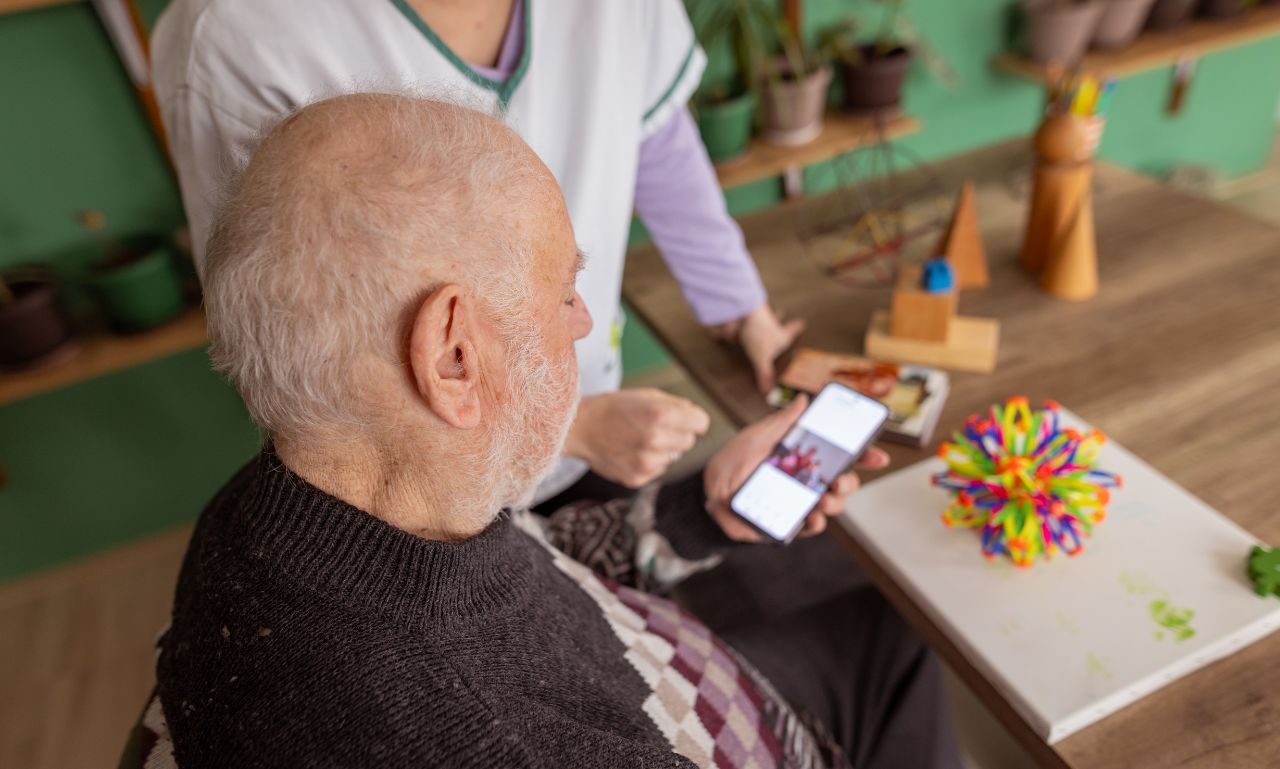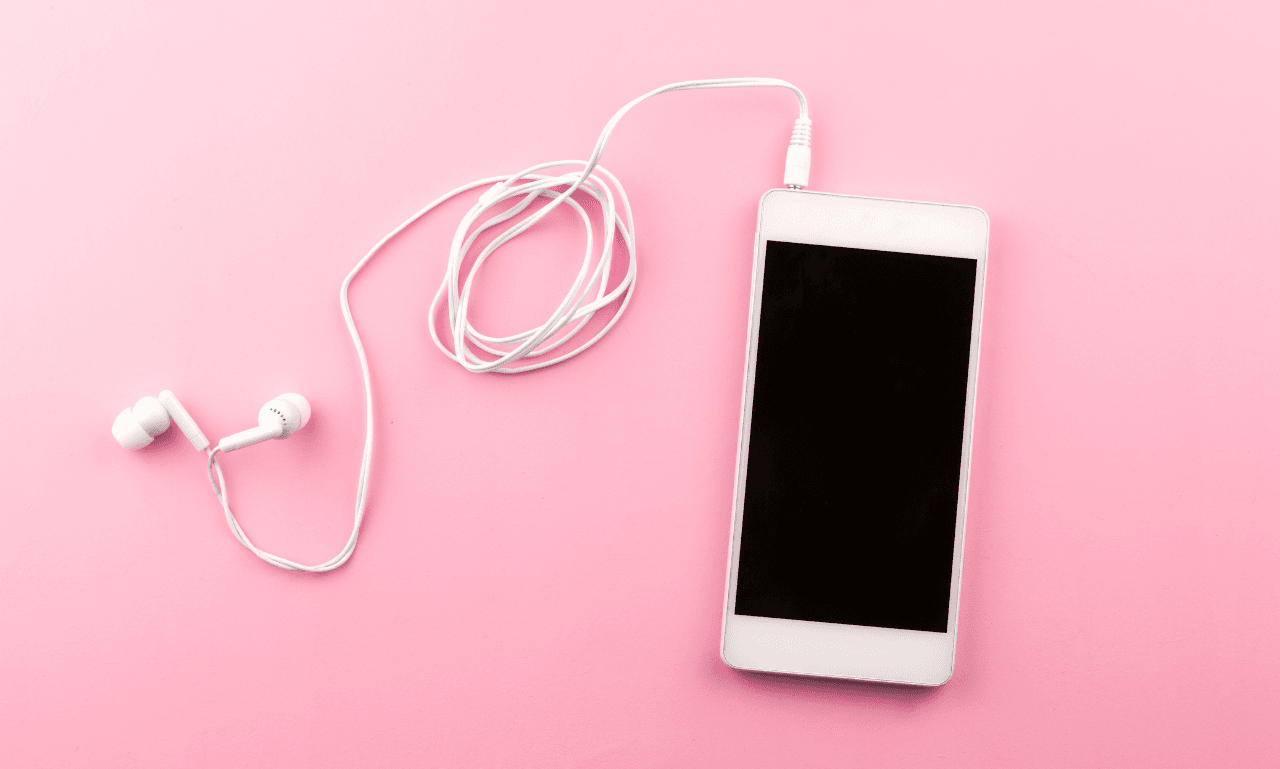A dementia diagnosis creates natural concerns about protecting the safety and well-being of the person who has it. The main question people ask themselves is about phone ownership for dementia patients. An adequately chosen cell phone provides valuable support for dementia patients, but you must select the right device.
This guide will cover everything you need to pick the perfect dementia-friendly phone. From essential features to real-world tips, you'll discover how to help your loved one stay connected, engaged, and supported on their dementia journey. Let's get started!
Why Easy-to-Use Phones Matter for Seniors with Dementia

Seniors with changing cognitive abilities find basic tasks, including phone calls to be overwhelming. As cognitive abilities change, even essential functions like making a phone call can feel overwhelming.
Dementia-friendly phones provide the solution to this problem. By prioritising simplicity, accessibility, and intuitive design, these specialised devices can help seniors with dementia:
- Stay connected with loved ones
- Access emergency help when needed
- Maintain a sense of independence and control
- Engage in mentally stimulating activities
- Feel more confident in their daily lives
Key Features to Look For
A phone becomes dementia-friendly through specific design elements, which include:
- Simplified user interface
- Large, high-contrast icons
- Clutter-free home screen
- Intuitive navigation
- Easy-to-use controls
- Large, tactile buttons
- Clear labels and symbols
- Adjustable volume and brightness
- Essential functions only
- Calling and texting
- Camera and photo gallery
- Reminders and notes
- Emergency features
- One-touch emergency calling
- GPS location tracking
- Caregiver alerts and monitoring
- Personalised settings
- Customisable contacts with photos
- Favourite apps and websites
- Adjustable font sizes and colours
The important phone functions enable your loved one to become more confident while learning phone skills. Because of new connection options, users and caregivers will experience enhanced engagement and peaceful feelings.
How to Choose the Right Phone
We must follow the selection process to make an informed decision about dementia-friendly phones.
Step 1: Assess Your Loved One's Needs and Abilities
Before you start shopping, take a moment to consider your loved one's unique situation. Ask yourself:
- At what level of dementia does your loved one currently exist?
- Do they feel at ease with technology?
- What problems does your loved one encounter when operating their phone?
- Will they be using the phone independently or with support?
Step 2: Explore Your Options
When it comes to dementia-friendly phones, you have three main categories to choose from:
- Basic Cell Phones
- Simple flip or candy bar-style phones
- Large buttons and displays
- Limited features focused on calling and texting
- Senior-Friendly Smartphones
- Simplified touchscreen interfaces
- Essential apps and functions only
- Built-in accessibility features
- Specialised Dementia Phones
- Devices designed specifically for dementia
- Extra-large icons and text
- Advanced monitoring and caregiver controls
The selection process requires consideration of your loved one's technical experience, budget constraints, and essential functionality needs. You need to study different solution options before picking the correct fit.
Step 3: Set Up and Personalize the Phone
Once you've chosen the perfect phone, it's time to set it up for use. Here are a few key things to do:
- Add emergency contacts
- Program important numbers like family, doctors, and local police
- Set up speed dial or one-touch calling for key contacts
- Customize the home screen
- Remove any unnecessary icons or apps
- Add photos of contacts for easy recognition
- Adjust font sizes, colours, and contrast for visibility
- Configure accessibility settings
- Enable voice commands or dictation
- Adjust touch sensitivity and haptic feedback
- Set up hearing aid compatibility if needed
- Test all features thoroughly
- Make sure everything is working properly
- Address any glitches or confusing elements
- Create a simple user guide if needed
By personalising the phone for your loved one's needs, you can help ensure a smooth and successful transition to their new device.
Step 4: Provide Ongoing Support and Encouragement

The learning process for new phones by dementia patients needs constant patient support since immediate mastery is impossible. Your assistance must remain active as your family learns the new phone system. Here are a few tips:
- Start with short, supervised practice sessions
- Focus on one or two key features at a time
- Provide visual aids like step-by-step guides
- Celebrate their successes and progress
- Be patient and understanding of any frustrations
Remember that your mission is to build their connection and engagement rather than create extra stress for them. After spending some time practising, they will effortlessly master their new phone.
Real-World Success Stories
Is your loved one ready for a dementia-friendly phone? These real-world success stories might just change your mind:
Mary and the Jitterbug Flip
When Mary's family first suggested getting her a dementia-friendly phone, she was hesitant. At 82 years old with moderate Alzheimer's, she worried it would be too complicated to learn. But after just a few days with her new Jitterbug Flip, Mary was hooked!
The large buttons and simple navigation made it easy for Mary to call her kids and grandkids without confusion. With one-touch emergency calling, Mary felt safer living alone. Now, she loves showing photos of her family on the big, bright screen!
Bob and the GrandPad Tablet
For Bob, a retired engineer with early-stage dementia, staying mentally engaged was a top priority. His son chose the GrandPad tablet, a senior-friendly device that offers brain games, music therapy, and family video chat.
Bob quickly took to the simple touchscreen interface and personalised home page. He loves competing for high scores on his favourite games and listening to classic jazz albums. And with the GrandPad's secure family network, Bob can easily stay in touch with loved ones nationwide.
Ruth and the RAZ Memory Cell Phone

Ruth had always been fiercely independent – so when dementia started impacting her daily life, it was a difficult adjustment. Her daughter knew she needed a phone that could keep her safe without sacrificing her autonomy.
Enter the RAZ Memory Cell Phone! With its simplified layout and remote monitoring features, Ruth can still call friends, go on walks, and run errands without fear. Through the caregiver portal, her daughter can monitor her situation at any time, which provides security for both of them.
These few examples show how dementia-friendly phones significantly improve senior quality of life and family wellness. The right device, alongside patience, enables you to help your loved one remain connected and engaged through their dementia experience.
Conclusion
The selection of cell phones for dementia patients demands finding proper functionality alongside user-friendly interfaces. Your search should result in finding a device which provides straightforward access to necessary features for users with simplified interfaces. By understanding your loved one's needs, you can find a phone solution offering safety features alongside connection and engagement capabilities despite potential difficulties.
One key thing to consider is that what works for one senior may not work for another. The key is approaching the process with patience, empathy, and a willingness to adapt. So don't be afraid to explore your options, ask for help, and keep an open mind. With the right phone and a little TLC, you can help your loved one thrive on their dementia journey – one call, text, or photo at a time.




